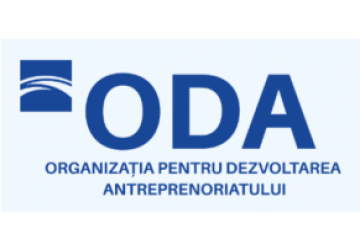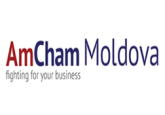
About 2.7 billion lei has already been invested in Moldova's national economy within the “373” investment incentive program
The Organization for Entrepreneurship Development (ODA) reported this, noting that the government is building a strong local economy, including through the “373” program - a government program of support for entrepreneurs, one of the priority measures of the “Building a European Moldova” National Plan. In just 15 months since its launch, the “373” program has achieved remarkable results for the SME sector, becoming a popular instrument for financing investment projects. Within the framework of “373” about 2.7 billion lei has already been invested in the national economy and the prospects remain optimistic. 605 investment projects have already been finalized or are in different stages of implementation. The investments support the development of companies that employ about 6,580 people, and it is estimated that more than 1,380 new jobs will be created in the near future. The money was directed to the development of small and medium-sized businesses, thus contributing to the support of a vital segment of the national economy and, indirectly, of the whole Moldova. Loans under the “373” program allow entrepreneurs to develop their business, grow, reach a higher level and create new jobs. As ODA notes, the geographical distribution of investment projects covers all regions of the country, their values being proportional to the number of companies in each region. The biggest investments accounted for the Central region - over 1 billion lei, followed by Chisinau - 935 million lei, Northern region - 485 million lei and Southern region, including ATU Gagauzia - 247 million lei. The average value of loans is about 3 million lei. The “373” program is demanded by companies in various fields of activity. The largest investments were made in the sector of production and energy supply, which attracted about 42% of the total value of investment projects. Transportation and storage was another important sector, accounting for 22%, followed by industry at 15%. Health, social care, education, leisure and other sectors also made notable investments. The “373” program started in July 2023, and this spring the government increased access to funding and simplified procedures. SMEs in the trade sector (except those selling alcoholic beverages and tobacco products) and in the maintenance and repair of cars and motorcycles now have easier access to finance. The maximum loan amount was increased from 15 million lei to 40 million lei, and the financing of the purchase of raw materials and supplies needed for production or rendering services within 30% of the investment project's value was allowed. At the same time, the maximum guarantee ceiling was increased from 40% to 80% of the loan amount through the Credit Guarantee Fund, as well as the bank procedures for issuing loans were simplified. The goal of the government's “373” investment incentive program is to ensure the access of small and medium-sized enterprises to financing for investment projects through partial compensation of the interest rate on investment loans granted by Moldovan banks. Under this program, entrepreneurs can apply for a loan with an interest rate of 7% per annum in lei and 3% per annum in foreign currency. Investment loans can be attracted by small and medium-sized enterprises for a term of up to 7 years with a grace period of up to 3 years. The interest rate is compensated by the state through the Fund for Entrepreneurship and Economic Growth of Moldova of the Entrepreneurship Development Organization. The objective of the program is to stimulate economic growth through entrepreneurship by providing financial support for investment projects for the development of entrepreneurship and to achieve the following specific objectives within the framework of its implementation: increasing the number of small and medium-sized enterprises with access to financing for investment projects in order to support the development and growth of the relevant business; stimulating economic growth through investments in projects that can improve the efficiency and effectiveness of business in order to facilitate an increase in wages for employees, as well as an increase in the income and profitability of SMEs; increasing the competitiveness of SMEs through investments in projects aimed at improving the efficiency, productivity and quality of products and services and contributing to the growth of exports and/or import substitution in order to promote sustainable development and strengthen the position of SMEs in the domestic and foreign markets. // 18.10.2024 - InfoMarket.







